Everything You Didn’t Know About the Difference Between These Two Gasses

It could be reasonable to think that the only difference between propane gas and natural gas is how it gets delivered to your home. Natural gas comes from a local utility and is delivered to your home via an underground system of pipelines. Propane is stored in a tank at your home of business and is delivered in a truck from your chosen propane dealer. In fact, there are a lot of differences between the two fuels—and the value they provide.
Your first clue that propane and natural gas are more different than you might think is in the name, propane, which is more formally known as liquid propane gas or LPG. It’s a byproduct of natural gas that is compressed and stored in a liquid state. That’s why propane is usually measured in gallons. Natural gas is measured in therms, which is 100 cubic feet of gas, or about 100,000 Btus (British Thermal Units) of energy. And that’s where you start to see the big difference between the two.
Propane Burns Hotter
Technically, both propane and natural gas burn at the same temperature—3,560˚ Fahrenheit—but unit-for-unit, propane delivers much more heat energy than you get from natural gas.
One cubic foot of propane generates approximately 2,520 Btus of heat. One cubic foot of natural gas generates less than half as much, at about 1,012 Btus of heat. (One Btu is the amount of energy needed to increase the temperature of one pound of water by 1˚ Fahrenheit.)
In basic terms, propane delivers more than twice the Btus of natural gas, so you need much less propane to produce the same amount of heat or energy. Propane also generates more Btus than an equivalent amount of electricity. That makes propane a great value. In fact, according to the U.S. Department of Energy, homes that heat water with propane rather than electricity can see average annual savings of $174.
Propane is Versatile
Because propane is so efficient, it’s a smarter choice than electricity for a wide variety of appliances, in addition to heating your home. For example, propane water heaters generate much more hot water at a cheaper cost per gallon.
The same technology that makes propane ideal for water heaters makes it a smarter choice than electricity to power all kinds of appliances that use hot water or heat, including washers and dryers, dishwashers, outdoor lighting, patio heaters, space heaters, pool and spa heaters, outdoor grills and more.
Propane Is More Reliable
You can use propane to heat your home and water, to cook, and more, no matter where you live. On the other hand, natural gas requires an expensive connection, that may not even be available where you live. You also are stuck dealing with a large natural gas utility for your gas supply. If something goes wrong with their infrastructure, even if it’s miles away, you could be without gas in your home for hours, or longer. If your home loses its natural gas service in the winter, you’re stuck with a cold home, cold food, and cold showers until the gas comes back.
With propane, your supply is right there at your home. When you have a propane-powered stand-by generator, propane will keep your home powered and safe through electrical outages, too. And our automatic delivery and wireless propane tank monitoring services mean you don’t have to do a thing, and you’ll have peace of mind knowing that you’ll always have the propane you need to stay comfortable.
Propane Is More Environmentally Friendly
You might also be surprised to know that propane is a domestically sourced fuel that is one of the cleanest and efficient fuels around. Propane is named as an alternative fuel in both the 1990 Clean Air Act and the 1992 National Energy Policy. Propane is nontoxic and nonpoisonous, so it doesn’t contaminate groundwater or soil if it leaks – which means propane tanks can be safely buried out of sight.
While natural gas does have lower emissions of carbon monoxide and nitrous oxides than other fossil fuels, it still emits them. What’s more, aging pipelines can result in methane leaks that are hard identify and even more challenging and expensive to repair—expenses that typically get passed on to the customers.
Ready for Propane?
Whether you are remodeling your existing place, shopping for a new home, building your dream house, or just looking for ways to reduce your carbon footprint, propane provides great value.
The experts at Pico have the experience and knowledge to answer all your questions and help make adding propane to your Texas home easy. We provide great propane services like on-time deliveries, smart payment plans to help keep costs manageable and so much more. Contact us to learn more and become a customer today.


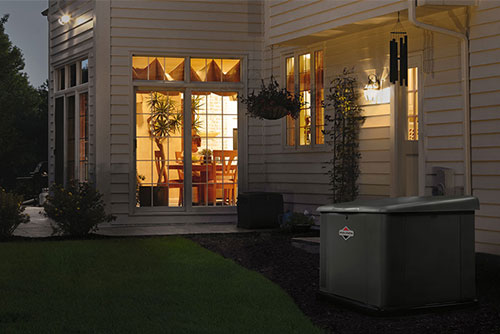 There’s no denying that more extreme weather patterns lead to more frequent and extended power outages. Here in Texas, we get the full gamut: tornadoes, thunderstorms and hail, hurricanes on the coast, and extreme cold and ice storms. Losing power for two or three hours is annoying, but an outage lasting much longer starts to be expensive, and even dangerous in extreme heat or cold. It’s important to be prepared.
There’s no denying that more extreme weather patterns lead to more frequent and extended power outages. Here in Texas, we get the full gamut: tornadoes, thunderstorms and hail, hurricanes on the coast, and extreme cold and ice storms. Losing power for two or three hours is annoying, but an outage lasting much longer starts to be expensive, and even dangerous in extreme heat or cold. It’s important to be prepared. 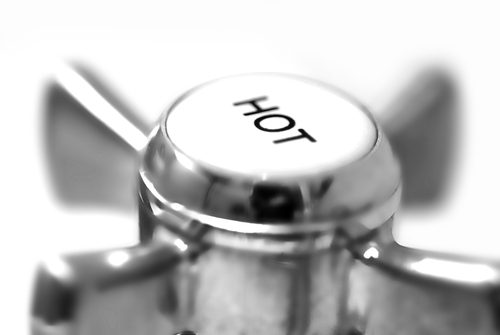 Most tank-type water heaters should last about 10 years before you begin to notice a reduction in performance. With good maintenance, they can last even longer. So it may have been a while since you last shopped for a
Most tank-type water heaters should last about 10 years before you begin to notice a reduction in performance. With good maintenance, they can last even longer. So it may have been a while since you last shopped for a  If you operate a manufacturing business, you always need to watch your bottom line. Rising material and labor costs eat away at your margins, and you need to keep a sharp eye on efficiency in order to keep delivering a great product at a fair price.
If you operate a manufacturing business, you always need to watch your bottom line. Rising material and labor costs eat away at your margins, and you need to keep a sharp eye on efficiency in order to keep delivering a great product at a fair price. 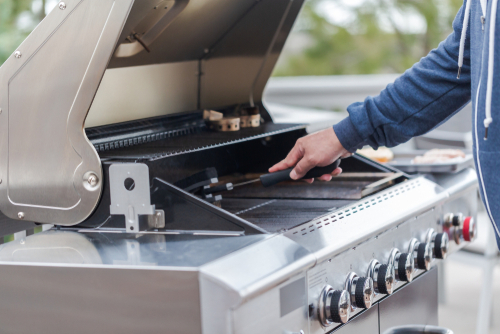 Spring is in the air—and with that comes the return to outdoor living and firing up the grill. While some people swear by charcoal, for the ease that makes grilling an any-night option you want to go with a propane-fired grill. Whether you have a full-featured outdoor kitchen or you’re just looking to grill some burgers or chicken on your deck, our team of pros can help you create the perfect propane grilling setup for your outdoor space.
Spring is in the air—and with that comes the return to outdoor living and firing up the grill. While some people swear by charcoal, for the ease that makes grilling an any-night option you want to go with a propane-fired grill. Whether you have a full-featured outdoor kitchen or you’re just looking to grill some burgers or chicken on your deck, our team of pros can help you create the perfect propane grilling setup for your outdoor space. 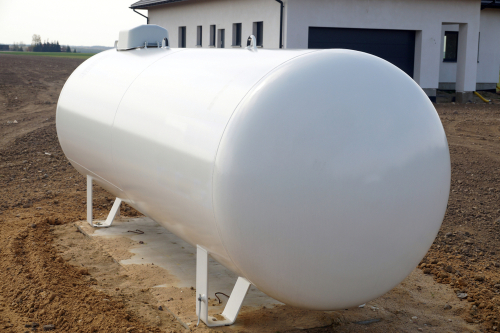 If you’re new to propane, or you’ve only ever used propane to run a portable grill, you might not have given much thought to how many different sizes of propane tank there are. But with a fuel that’s so versatile and efficient, it shouldn’t come as a surprise that many different sizes to match propane’s many uses.
If you’re new to propane, or you’ve only ever used propane to run a portable grill, you might not have given much thought to how many different sizes of propane tank there are. But with a fuel that’s so versatile and efficient, it shouldn’t come as a surprise that many different sizes to match propane’s many uses.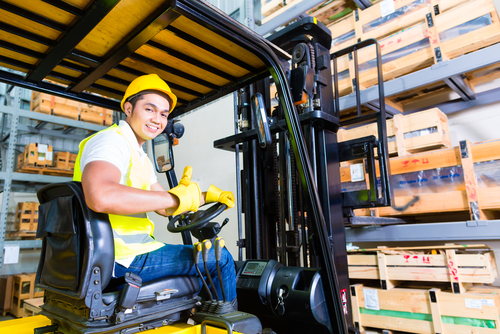 Unless you have a single forklift that you only use sporadically, there’s no smart reason to use a retail propane cylinder exchange for your business.
Unless you have a single forklift that you only use sporadically, there’s no smart reason to use a retail propane cylinder exchange for your business.  When it comes to running your business, you need to keep a sharp eye on every line item in your budget. Electricity may seem like one of those expenses that you can’t control, short of installing LED bulbs and other energy-saving tools. Of course, electricity is essential for lights and computers. But you might be surprised to find that many of the systems and equipment that are essential for your operation could run more efficiently with
When it comes to running your business, you need to keep a sharp eye on every line item in your budget. Electricity may seem like one of those expenses that you can’t control, short of installing LED bulbs and other energy-saving tools. Of course, electricity is essential for lights and computers. But you might be surprised to find that many of the systems and equipment that are essential for your operation could run more efficiently with  More and more customers are discovering the ease and style of ga hearths. Not only do they add warmth and charm without the mess or hassle of logs and embers, but they have a realistic look that many people don’t expect. With memories of old electric fireplaces that put a plastic log over a lightbulb, many people ask, What kind of logs do you use in a
More and more customers are discovering the ease and style of ga hearths. Not only do they add warmth and charm without the mess or hassle of logs and embers, but they have a realistic look that many people don’t expect. With memories of old electric fireplaces that put a plastic log over a lightbulb, many people ask, What kind of logs do you use in a  Climate change is an important concern for all of us. But electrification isn’t the ideal way to go about it. Reevaluating the kind of energy you use—and diversifying rather than going all-electric—can help too. Of course electricity is necessary to run a lot of things—lights, phones, your computer. But it’s not the smartest choice for all your appliances and systems.
Climate change is an important concern for all of us. But electrification isn’t the ideal way to go about it. Reevaluating the kind of energy you use—and diversifying rather than going all-electric—can help too. Of course electricity is necessary to run a lot of things—lights, phones, your computer. But it’s not the smartest choice for all your appliances and systems. 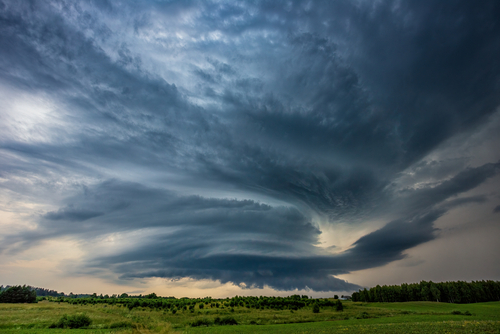 The National Oceanographic and Atmospheric Administration is forecasting a mild-to-normal winter for Texas, thanks to an El Nino weather pattern. But if you’ve spent the past few years here, you know that “normal” now means colder cold snaps and longer heat waves that can really challenge our grid. And you know that while losing power for two or three hours is annoying, an outage lasting any longer starts to be expensive, not to mention dangerous. More and more of our customers are looking for ways to be prepared for outages, and we tell them one of the best ways to protect your home and property is with a backup or
The National Oceanographic and Atmospheric Administration is forecasting a mild-to-normal winter for Texas, thanks to an El Nino weather pattern. But if you’ve spent the past few years here, you know that “normal” now means colder cold snaps and longer heat waves that can really challenge our grid. And you know that while losing power for two or three hours is annoying, an outage lasting any longer starts to be expensive, not to mention dangerous. More and more of our customers are looking for ways to be prepared for outages, and we tell them one of the best ways to protect your home and property is with a backup or 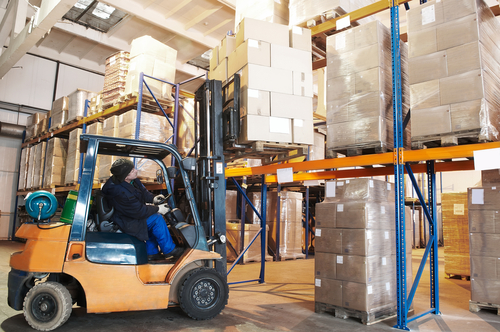
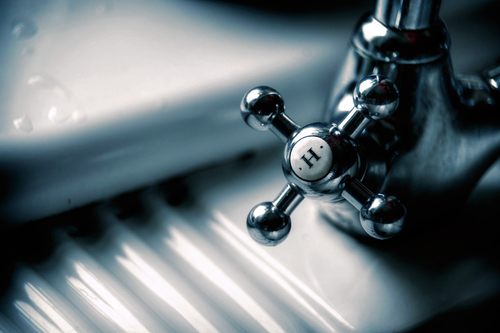 If you had to guess what energy expenses took the biggest bite out of your wallet, you might think it’s heating or cooling your home. Most homeowners are surprised to know that
If you had to guess what energy expenses took the biggest bite out of your wallet, you might think it’s heating or cooling your home. Most homeowners are surprised to know that 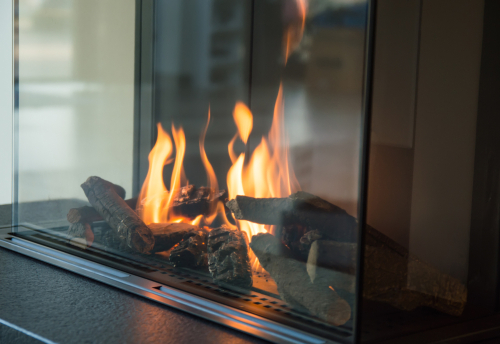
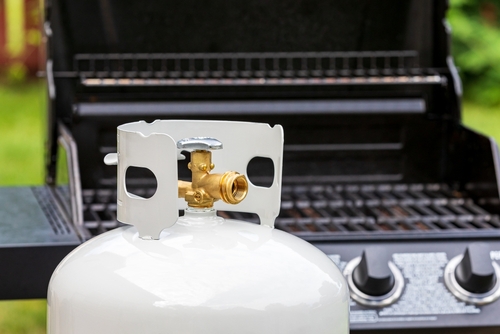 With our mostly mild winter weather, you may never need to put away the grill or pack up the patio furniture. But if you travel or spend extended periods away, you should know how to disconnect your barbecue and safely store grill tanks. Same is true if you use portable
With our mostly mild winter weather, you may never need to put away the grill or pack up the patio furniture. But if you travel or spend extended periods away, you should know how to disconnect your barbecue and safely store grill tanks. Same is true if you use portable  When it comes to cooking,
When it comes to cooking,  If you’re looking to add or switch to propane at your home, you may wonder how much propane you’ll need, what size tank to get and how long a tank of propane will last. It all comes down to how much propane you need. Since propane doesn’t have a shelf-life, it won’t degrade or spoil if you don’t use it in a set amount of time.
If you’re looking to add or switch to propane at your home, you may wonder how much propane you’ll need, what size tank to get and how long a tank of propane will last. It all comes down to how much propane you need. Since propane doesn’t have a shelf-life, it won’t degrade or spoil if you don’t use it in a set amount of time.  Have you’ve added appliances or built an addition onto your home? You might need to buy a larger propane tank to meet your needs. Is your current tank old and can no longer be certified? Or maybe you’ve bought a new home: If the previous owners leased their tank and you want to switch to a different provider, you’ll need to buy a new tank or lease one from the provider you choose. These are the most common reasons you might need to think about getting a new
Have you’ve added appliances or built an addition onto your home? You might need to buy a larger propane tank to meet your needs. Is your current tank old and can no longer be certified? Or maybe you’ve bought a new home: If the previous owners leased their tank and you want to switch to a different provider, you’ll need to buy a new tank or lease one from the provider you choose. These are the most common reasons you might need to think about getting a new  As extreme weather challenges our state both winter and summer, the grid is under more strain than ever. Losing power—and air conditioning—during intense stretches of heat like we’ve seen this summer can be more than uncomfortable. It can be life-threatening. That’s why more and more customers are asking about installing generators to ensure their homes can protect them from scorching heat and intense cold.
As extreme weather challenges our state both winter and summer, the grid is under more strain than ever. Losing power—and air conditioning—during intense stretches of heat like we’ve seen this summer can be more than uncomfortable. It can be life-threatening. That’s why more and more customers are asking about installing generators to ensure their homes can protect them from scorching heat and intense cold. 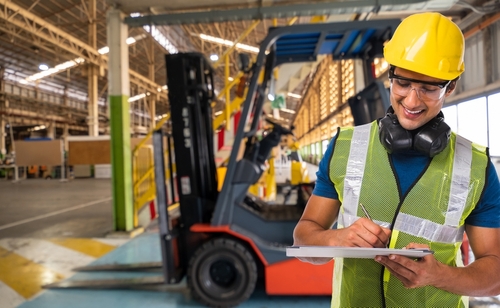 Just how efficient are propane-powered forklifts? They’re efficient on multiple levels. Not only are they energy-efficient, but they also help your business save time and money. Whether you need to get merchandise off trucks and onto shelves, or move building materials quickly and efficiently around worksites, forklifts are essential. Let our team show you why propane fueled forklifts will keep your operation running smoothly with less downtime—and significant savings over diesel or electricity. Here are just a few of the advantages of
Just how efficient are propane-powered forklifts? They’re efficient on multiple levels. Not only are they energy-efficient, but they also help your business save time and money. Whether you need to get merchandise off trucks and onto shelves, or move building materials quickly and efficiently around worksites, forklifts are essential. Let our team show you why propane fueled forklifts will keep your operation running smoothly with less downtime—and significant savings over diesel or electricity. Here are just a few of the advantages of 